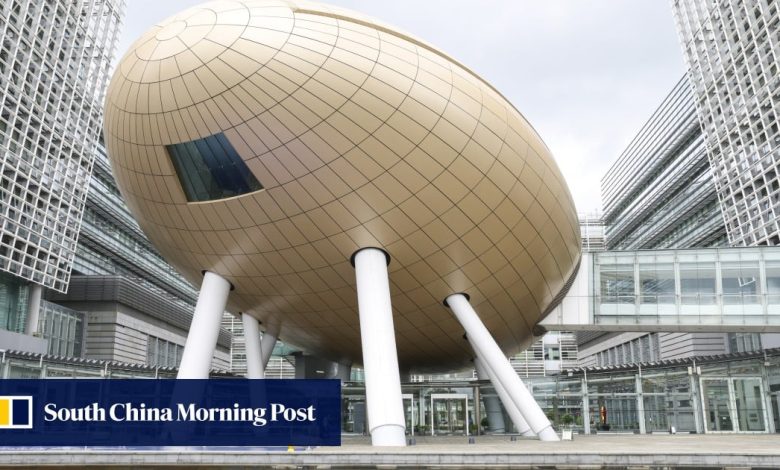Hong Kong gets foothold in global semiconductor industry with next-gen GaN wafer line

MassPhoton, established in Hong Kong in January this year, is working with the government-funded Hong Kong Science and Technology Parks (HKSTP) to establish an 8-inch GaN epitaxial wafer pilot production line, with the aim of achieving an annual production capacity of 10,000 units by 2027, MassPhoton founder and CEO Eason Liao said at a media briefing on Tuesday.
The company, which specialises in manufacturing ultraviolet-C disinfection products, will invest HK$200 million (US$25.6 million) in the new wafer production line in Hong Kong, and also establish a research and development centre for GaN technology at Science Park, the incubator run by HKSTP said in a statement on Tuesday.

GaN and silicon carbide (SiC) are third-generation semiconductors materials that, compared with traditional silicon-based semiconductors, have advantages such as higher energy efficiency and reduced size.
The planned GaN line comes as Hong Kong eyes a stake in the global semiconductor supply chain, as part of the city’s efforts to become an innovation and technology hub amid heightened geopolitical tensions.
In October last year, the HKSTP also signed a memorandum of understanding with mainland Chinese chip firm J2 Semiconductor, with the goal of setting up Hong Kong’s first SiC 8-inch wafer fab and a new third-generation semiconductor R&D centre.
One of the reasons Hong Kong chose to focus on third-generation semiconductors is that there are fewer restrictions on equipment that can be used to manufacture them, making it relatively easy to acquire key devices, Sun Dong, Hong Kong’s Secretary for Innovation, Technology and Industry, said at the time, according to reports in local media.
US export restrictions have cut off access in China to some of the most advanced chip-making equipment.
“We are confident about the consistency of the supply chain for third-generation semiconductors,” MassPhoton’s Liao said on Friday. Many mainland SiC firms are already leading the industry globally, he added.
Hong Kong lawmakers in May approved HK$2.84 billion in funding for the government to establish a research centre for semiconductors. The planned Microelectronics Centre at Yuen Long InnoPark is expected to start operations this year, HKSTP said on Friday.
MassPhoton is aiming to have its GaN wafers used in display technology, cars and data centres, among other areas, Liao said. The company is also aiming to raise an additional HK$100 million in funding by the end of the year, he said.




